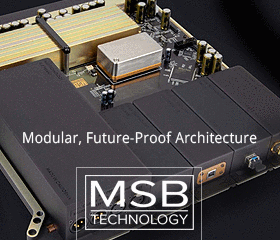Have Bill play you that Louis Armstrong DSD2x cut he has and then get back to me! LoL
He has some gear settling in, auditions to complete. Once the dust settles, I'm sure we'll make a date.
I can't say I'm a big Louie fan, I need to really hear how well implemented dsd copes w/challenging material like big orchestral eg Scheherazade, Holst, smaller Bartok string quartet, Bach organ/harpsichord, brickwalled rock/pop, and stuff from my era ie classic quartet/quintet 60s Miles and Coltrane, 60s Blue Note, and 70s Return To Forever, Mahavishnu, electric Miles, King Crimson, Magma etc, and some current day ambient/dub/electronic etc.
For me, I'm not pulled in by a'phile recordings at all eg native 128/256 dsd on specialist labels, and specialist analog 15ips tape catalog, and so demos of "pristine" a'phile analog and digital leave me somewhat cold.













